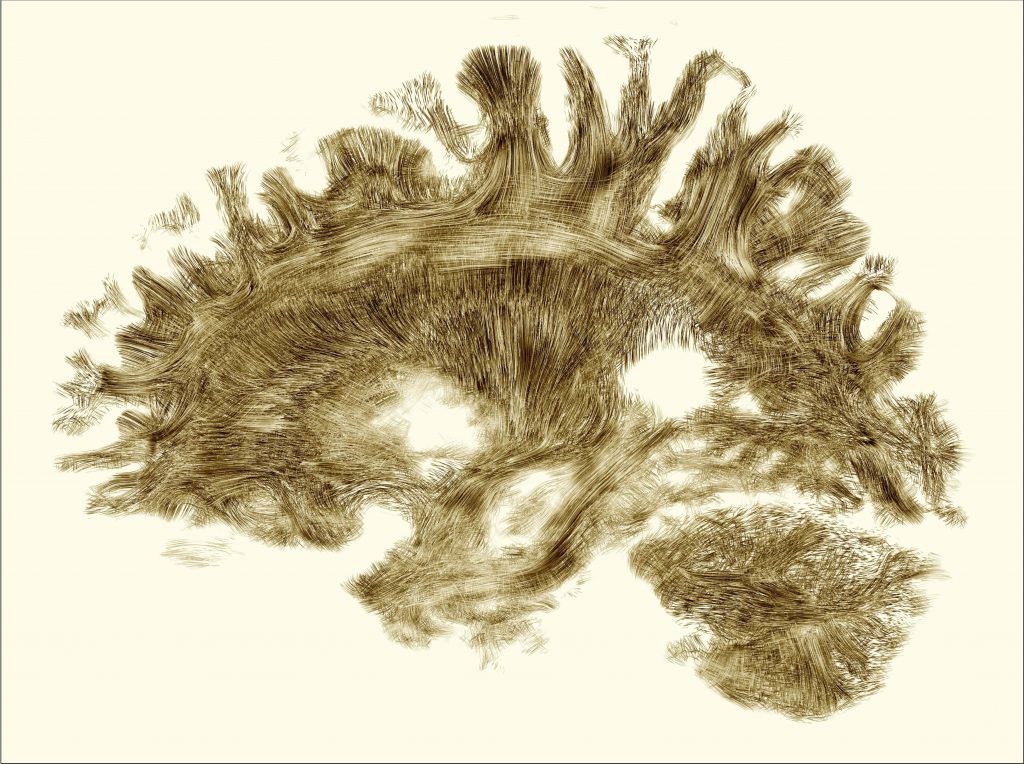Decision-making and Metacognition.
This project will link decision-making ability to the related concept of metacognition and will use cognitive neuroscience methods to inform questions around decision-making ability and support. This research is led by Professor Anthony David.
Background
In England the legal test for DMC requires that a person, in relation to a decision, be able to: understand information relevant to the decision; retain that information; and use or weigh it as part of the decision-making process. The ability to use and weigh information is especially relevant to mental health but is also a focus of controversy, as it is harder to define and quantify, and does not readily map onto basic psychological functions.
One construct attracting attention in neuro- and cognitive science is metacognition – knowledge of and reasoning about one’s own (and others’) mental states(33, 34). This involves the ability to self-reflect often discussed in relation ‘insight’.
We will use cognitive neuroscience methods to inform questions around decision-making ability: How does metacognition/using and weighing fluctuate in brain injury and dementia? What is the effect of varying mood and levels of gravity-of-decision on metacognition? Engaging with Work stream 1, we will also examine social effects on metacognition, in terms of the benign (supportive) or malign (pressured) influence of others. Engaging with Work stream 4 we will examine relevant kinds of evidence on decision-making ability and insight (e.g. case-based vs. experimental).
Approach
We will study metacognition and using and weighing ability through theoretical and experimental work.
Philosophy-led research will develop a theoretical framework that connects the legal test of ‘use and weigh’ and metacognition. For example, it will entail analysis of how rationality requires account of other peoples’ judgements (but not just agreeing with consensus) and ‘social epistemology’(35).
Experimental work will start with healthy volunteers moving on to people with conditions such as early dementia, brain injury, mood disorders and psychosis.
We will use tasks pioneered by Fleming which measure confidence in decisions at a given level of accuracy. This measure (“meta-d’”) has a specific neural instantiation and we will apply paradigms (adjusted for difficulty) to enable comparison between healthy and clinical groups. The work will quantify disorder-related deficits and examine whether these are common across disorders or disorder-specific.
There are three important aspects of metacognition which underlie ‘use and weigh’: (i) the mapping of values/desires onto decision-making; (ii) the construction of beliefs about the decision process; (iii) integration of social feedback. To operationalise (i), we will test for violations of utility theory; for (ii) we will employ decision and confidence tasks, and to examine (iii) we will design a bespoke extension (incorporating social feedback) to the metacognitive measure.
To deepen links between neuroscience and DMC we will also explore other paradigms with collaborators including neuroeconomic, moral reasoning and mood-manipulation paradigms. We will also devise novel ecologically valid methods of testing real-world decision-making using dialogic methods and large-scale internet surveys.
Finally, we will correlate metacognitive parameters (eg.,meta-d’) with clinical measures including insight, self-reflection and self-certainty scales, ‘theory of mind’ reasoning and executive functioning.
All experimental approaches will be refined in the light of our theoretical work and informed by the functional test of DMC.
Expected Outcomes
We will innovate interdisciplinary working in mental health, cognitive neuroscience and law and pave the way for future functional imaging and neurocomputational studies. The work-stream will also provide a practical synthesis of clinical measures relevant to assessment of DMC. These will be generalised enough so as to be useful to clinicians across a number of real-life settings yet informed by the work of Work Stream 4. To demonstrate the importance of metacognition for DMC in an accessible way for the public, we will produce web-based, interactive demonstrations - including YouTube videos, animations, online tests and ‘games’.
Workstream Members
Anthony David
Principal InvestigatorProfessor of cognitive neuropsychiatry, Institute of Psychiatry, Psychology and Neuroscience, KCL. Tony has interests in experimental neuropsychology, neuropsychiatry, insight and decision-making capacity. He will lead on Work Stream 5 and contribute widely across the research network.
Steve Fleming
Co-leadPrincipal Research Associate, Wellcome Centre for Human Neuroimaging, University College London. Steve has interests in experimental neuroscience, metacognition and neuroscience and law. He will provide PhD supervision in Work Stream 5 and contribute to all aspects of the work-stream.
Kevin Ariyo
PhD studentPhD student, Department of Psychological Medicine, KCL. Kevin has interests in cognitive neuroscience, decision making and mental capacity law. He will conduct metacognition experiments in Work Stream 5 and interview clinicians involved in capacity assessment.
Andrew McWilliams
Core memberClinical research fellow at King’s College London and the UCL Metacognition Lab, Andrew is a specialist registrar in child and adolescent psychiatry. He is interested in technology solutions to gamify tasks, improving the service user experience, as well as in designing tools which support capacity assessment.
Sherrilyn Roush
Core memberProfessor of philosophy of medicine, Department of Philosophy, KCL. Sherri has interests in philosophy of science, epistemology and philosophy of medicine (especially psychiatry). She will conduct research within Work Stream 5 and contribute widely across the research network.
Nick Shea
Core MemberProfessor of philosophy, Department of Philosophy, KCL. Nick has interests in philosophy of mind, social epistemology and metacognition. He will conduct research within Work Stream 5.
Elisa van der Plas
PhD studentPhD student at the Wellcome Centre for Human Neuroimaging, University College London. Elisa has interests in decision neuroscience, metacognition and social decision-making. She will conduct research on WS5 under the shared supervision of Dr. Stephen Fleming and Professor Anthony David.
Anthony David
Principal InvestigatorProfessor of cognitive neuropsychiatry, Institute of Psychiatry, Psychology and Neuroscience, KCL. Tony has interests in experimental neuropsychology, neuropsychiatry, insight and decision-making capacity. He will lead on Work Stream 5 and contribute widely across the research network.
Steve Fleming
Co-leadPrincipal Research Associate, Wellcome Centre for Human Neuroimaging, University College London. Steve has interests in experimental neuroscience, metacognition and neuroscience and law. He will provide PhD supervision in Work Stream 5 and contribute to all aspects of the work-stream.
Kevin Ariyo
PhD studentPhD student, Department of Psychological Medicine, KCL. Kevin has interests in cognitive neuroscience, decision making and mental capacity law. He will conduct metacognition experiments in Work Stream 5 and interview clinicians involved in capacity assessment.
Andrew McWilliams
Core memberClinical research fellow at King’s College London and the UCL Metacognition Lab, Andrew is a specialist registrar in child and adolescent psychiatry. He is interested in technology solutions to gamify tasks, improving the service user experience, as well as in designing tools which support capacity assessment.
Sherrilyn Roush
Core memberProfessor of philosophy of medicine, Department of Philosophy, KCL. Sherri has interests in philosophy of science, epistemology and philosophy of medicine (especially psychiatry). She will conduct research within Work Stream 5 and contribute widely across the research network.
Nick Shea
Core MemberProfessor of philosophy, Department of Philosophy, KCL. Nick has interests in philosophy of mind, social epistemology and metacognition. He will conduct research within Work Stream 5.
Elisa van der Plas
PhD studentPhD student at the Wellcome Centre for Human Neuroimaging, University College London. Elisa has interests in decision neuroscience, metacognition and social decision-making. She will conduct research on WS5 under the shared supervision of Dr. Stephen Fleming and Professor Anthony David.

